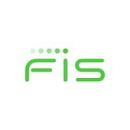The finance industry regularly embraces new technologies to sell products and services, and a huge boon in recent years has been the omnipresent Internet of Things.
A vast network of web-connected devices that collect and share data, the IoT plays a variety of roles: It simplifies debt collection by monitoring supply chain activity via sensors and networks; it improves fraud protection by employing on-site security systems that sense every network connection and potential connection; it optimizes what’s called “capacity management” to enhance customer service. It can even help with indoor navigation and security at bank branches or other institutions.
Here are 11 examples of how the IoT is revolutionizing banking and finance.
IoT in Fintech & Banking
IoT in Fintech Examples
Founded: 2010
Location: San Francisco, California
Stripe’s software customizes and facilitates payments and organizational aspects for companies of all sizes via a secure and private cloud-based infrastructure. It also includes applications for revenue management, fraud prevention and international expansion. Because the vast majority of commerce is still done offline, Stripe introduced Stripe Terminal for use at retail outlets.
Founded: 2019
Location: San Francisco, California
Cardless is adding a fun dimension to consumer credit by uniting spending with professional sports brands. Whenever customers shop with their chosen brands, they can earn points for statement credits, gift cards and even team-specific rewards. For example, those who take advantage of the Liverpool FC Card can enjoy merchandise discounts and a complimentary LFC international membership.
Founded: 2013
Location: New York, New York
Kontakt.io makes low-energy bluetooth beacons that can be used for mobile payments and more, taking the place of traditional (and more costly) point-of-sale technology. Advantages include smaller lines or none at all, streamlining the shopping process, increasing time spent exploring other parts of the store and ramping up data generation for the business.
Founded: 2013
Location: Fully Remote
Cash App’s platform allows users to quickly send payments, receive direct deposits, buy stocks and perform other transactions — all through a mobile app. The company also offers various ways to protect finances, including security locks and encryption techniques, so customers can breathe easy knowing payments are secure as well as fast.
Founded: 2015
Location: Palo Alto, California
Armis works with a variety of businesses, including banks, to provide IoT security that lets them see and contain every device on their networks. Benefits include the automatic identification and disconnection of unmanaged devices, quick deployment, easy integration with a business's existing infrastructure and agentless tracking and control that can discover devices even before they join a network.
Founded: 1968
Location: Jacksonville, Florida
FIS is set on streamlining the ways financial institutions and businesses operate by providing cloud-based solutions. Flexible software and industry-specific research allow the organization to tailor its technology to the unique needs of each client, whether it be digital banking, payment processing, investing and other common financial areas that businesses and individuals depend on.
Founded: 2007
Location: Cheswick, Pennsylvania
Dynamics makes IoT-connected, battery-powered interactive payment cards that provide two-way communication between banks and clients in real time. Each card has a display screen through which bank clients can ask questions and get quick answers. The so-called "Wallet" sends the bank a notification containing details about when, where and how payments were made.
Founded: 1966
Location: Purchase, New York
MasterCard uses IoT technology to streamline fleet management by integrating fuel and maintenance information with the payment process. The company has also formed strategic partnerships to create products that streamline several everyday activities, resulting in innovations like contactless payments (with Coin), smart refrigerators that can re-order groceries (with Samsung) and IoT-connected key fobs (with General Motors).
Founded: 2011
Location: San Francisco, California
Using IoT-connected trackers, Metromile offers cost-effective per-mile insurance plans based on mileage and driving behavior. It also streamlines the claims process by letting drivers file an entire claim from their mobile phones. As a result, Metromile is changing the auto insurance experience and replacing traditional factors like credit scores and zip codes with a focus on driving habits.
Founded: 2011
Location: San Francisco, California
SoFi’s digital services aim to make juggling finances more manageable. Customers can keep track of their financial situations in a single app, staying on top of checking accounts, mortgages, student loans and other major commitments. SoFi also supports its members with a team of credentialed advisors, ensuring individuals have the knowledge and resources to meet their financial goals.
Founded: 2021
Location: New York, New York
Rather than promote competition, Rift Finance is helping businesses collect token liquidity by taking a collective approach. The company has developed a network of decentralized autonomous organizations, or DAOs, which allows it to deliver higher rewards with less risk to its liquidity provider partners. As a result, names like Fantom, Unilend and Parsiq have joined forces with Rift to create more sustainable liquidity practices.












